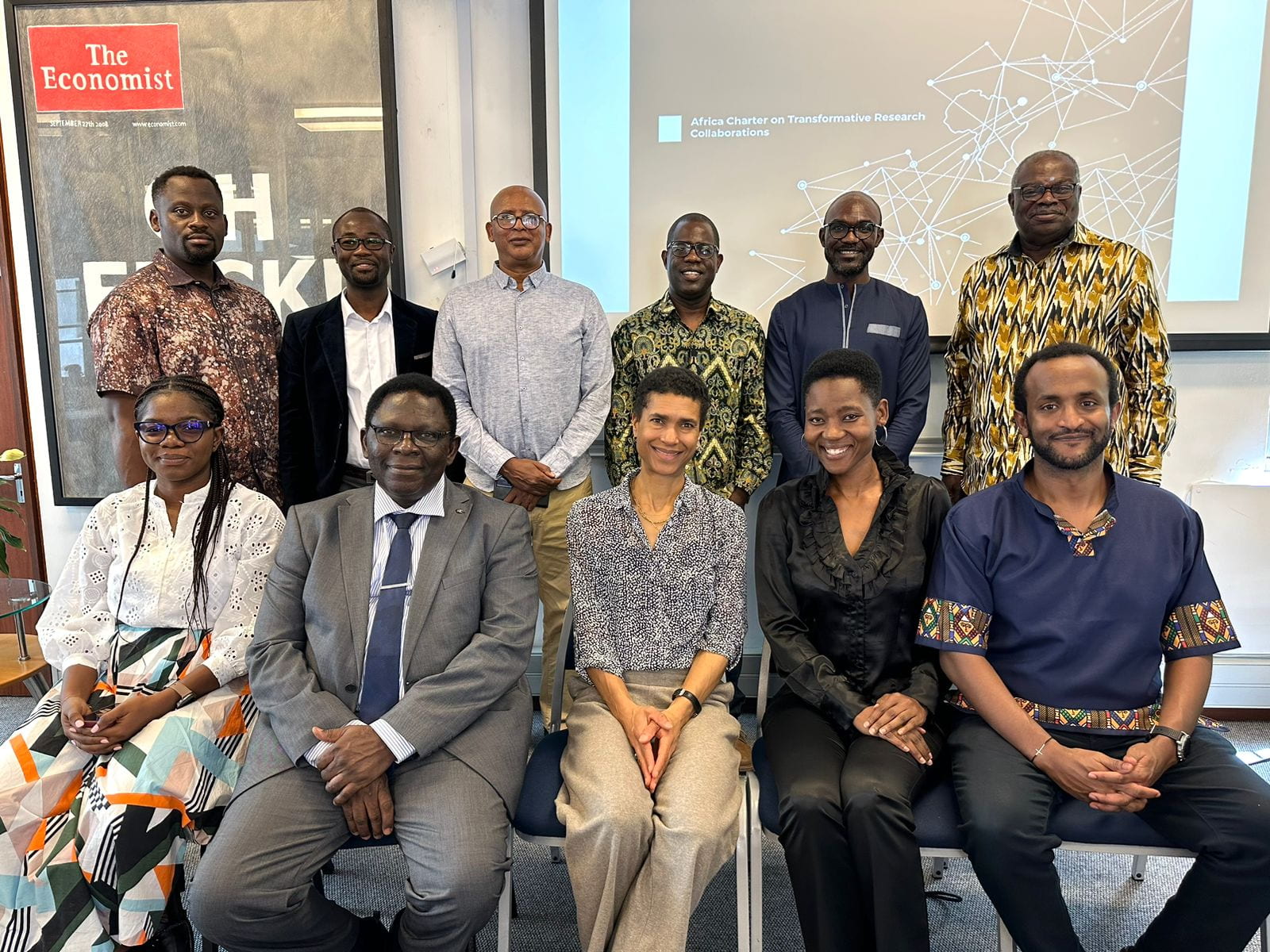In March 2024 the Africa Charter Steering Group came together at the Institute for Humanities in Africa (HUMA) at the University of Cape Town to plan the next stage of the Africa Charter’s development.
The Steering Committee for the Africa Charter (SCAC)* set out a three-year foundational phase in a longer-term effort to propel and sustain the realisation of Charter principles and aspirations, globally.
Between 2024 and 2027, the member institutions will form a consortium to drive a concerted, multi-functional programme of critical review, inquiry, learning and pathfinder interventions among Charter signatories and wider HE and science sector stakeholders. The purpose of the programme is to establish foundations for – and set in motion – wider processes of change in academic ecosystem discourses, practice norms and structures.
The ultimate goal is to nurture the evolution of a ‘community of practice’ around Charter-aligned change.
The three core facilitating institutions for the Charter initiative (HUMA, the UNISA Research Chair and PARC) will jointly drive the development of plans and funding proposals for the envisaged programme of work, and, once established, provide the overall coordination and oversight function for it. The Association of African Universities (AAU), drawing on its continent-wide remit, will provide a central convening and stakeholder engagement platform.
One of the first steps will be to develop a ‘theory of change’ for the Charter, followed by critical analysis and testing of approaches and intervention points for shifting policy and regulatory frames.
Since its launch in July 2023, the Charter has already garnered extraordinarily wide support and formal endorsement from over 100 bodies – including major global University Networks, academic associations, and key HE Institutions.

*The founding Steering Committee for the Africa Charter (SCAC) comprises the initiative’s primary steward and champion institutions (the Association of African Universities (AAU), African Research Universities Alliance (ARUA), African Academy of Sciences (AAS), CODESRIA, International Network for Higher Education in Africa (INHEA), Institute for Security Studies (ISS), Future Africa at the University of Pretoria, University of Toronto, the University of South Africa (UNISA) Albert Luthuli Research Chair, the Institute for Humanities in Africa at the University of Cape Town (HUMA) and the Perivoli Africa Research Centre, University of Bristol (PARC))
